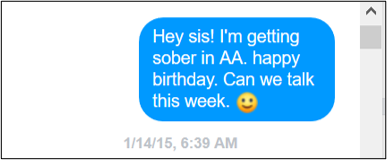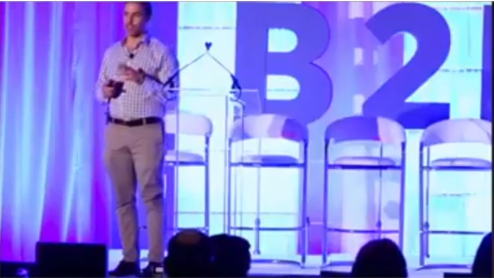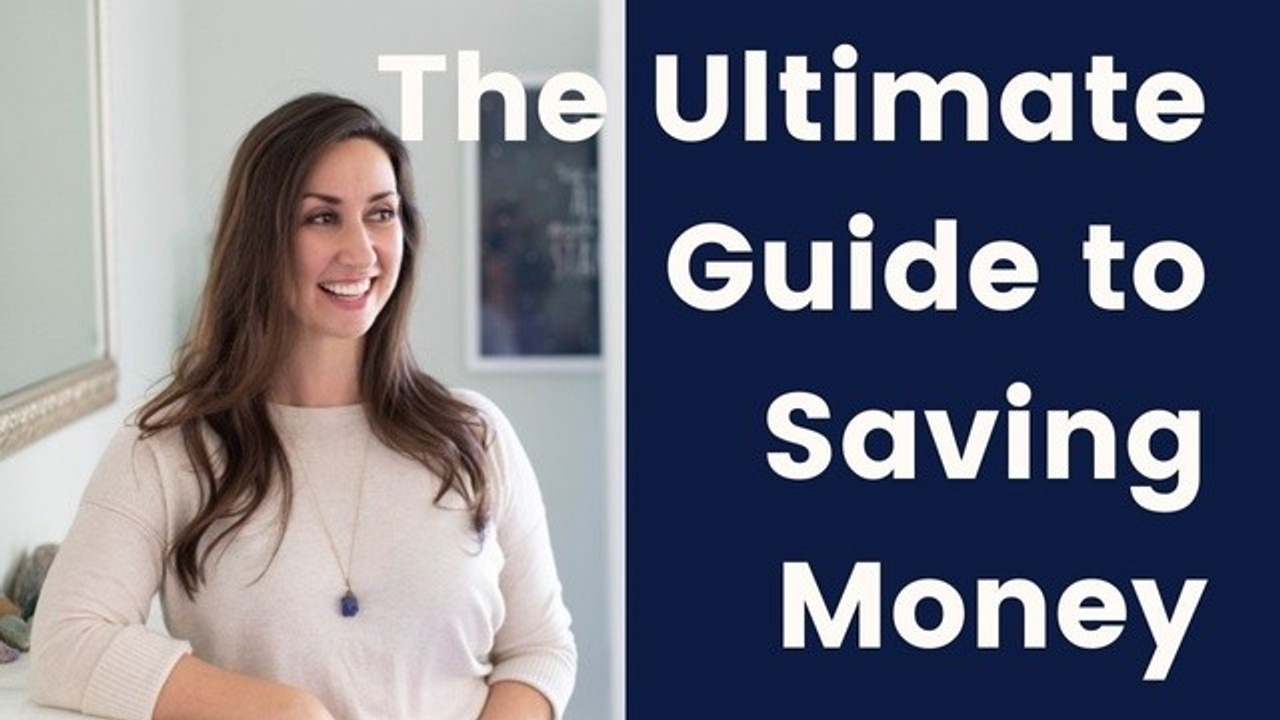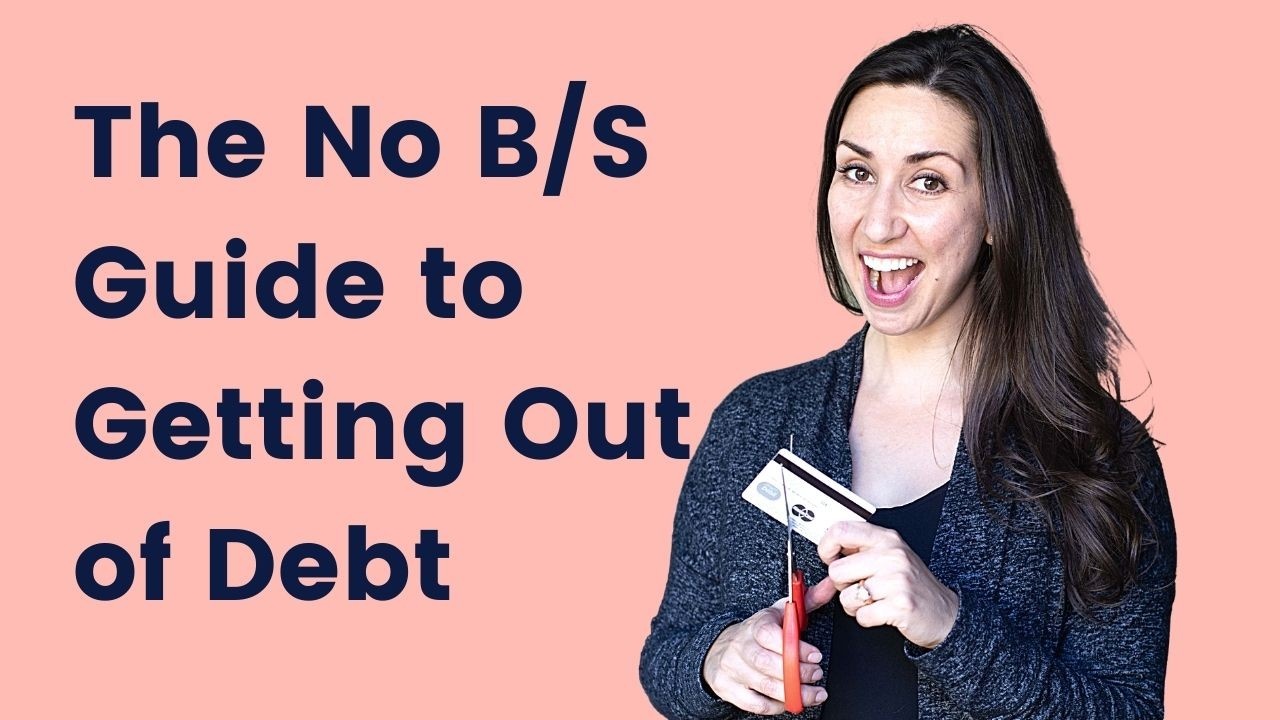
How I Used Influence Tactics Ethically to Make $451k in 1 Year
Whether you're an individual looking to get a new job or negotiate for a promotion, or if you're a small business owner looking to generate more sales, knowing how to leverage these six influence tactics will translate into generating more income and revenue for yourself.
I want to walk you through the six influence tactics that I've used in both my career and in being an entrepreneur to generate more income.
TABLE OF CONTENTS
Service Mindset > Sleezy Sales
Summary of the Six Influence Tactics including Examples
#6 Reciprocity (my personal favorite)
How I Made $451,000 in 1 Year using Influence Tactics
Three Tactics That Landed Me the Job
#1 Authority: I developed a reputation of being an expert
#2 Social Proof: My network vouched for me
#3 Scarcity: I was the scarce resource
How to Apply the Influence Tactics to Your Next Salary Negotiation or Job Offer
How to Use Influence in Your Small Business
Service Mindset > Sleezy Sales

A lot of people get an icky feeling when I start talking about influence.
Whenever I'm talking about influence or persuasion or selling people on something, people often get this really uncomfortable feeling inside that they're somehow deceiving others, or there's something wrong with using influence tactics or using persuasion.
If you feel that way, just know that I totally understand that feeling and that sentiment is totally normal!
We've all had the experience where someone really didn't have our best interests first. They were after something from us.
That is not what I am training you to do. I am training you to use these influence tactics ethically and surround them with a service first mindset.
I don't want you to be a sleazy car sales person. I'm not trying to give you sleazy tips on how to deceive people so that they give you their money.

I first and foremost want you to be coming from a service mindset and using these influence tactics to ethically support people in making decisions that benefit THEM. The by-product or symptom is that you make more money. That is the framing and context is essential.
Always putting your customer, your employees or your company first but yet not hesitating to use these influence tactics so that you can actually take care of yourself as well is the goal.
Summary of the Six Influence Tactics including Examples
These influence tactics are from a book called "Influence: The Psychology of Persuasion" by Robert Cialdini. This is from a book is incredible for any business owner, employee, or salesperson to read. Let's look at each influence tactics. Then we'll talk about how to use influence as a small business owner and how to use influence as a career individual to generate a raise or a promotion.
Click the video below to hear me explain the 6 influence tactics one by one.
#1 Commitment and Consistency
This principle basically means that you must save face and stay consistent with your commitments. If you've made your commitments public, if you made a public declaration, you will be compelled and motivated and incentivize to stay consistent with your commitments if they are public or made to an individual.
If, however, they private commitments, you don't really have to follow through on them, or at least there won't be consequences directly seen by others.
Commitment and consistency is very powerful in motivating people to follow through on something they've made a commitment to.
Example: When I chose to get sober I shared it with my sister. This created a bond that helped me remain consistent with my commitment. Since I'm sharing it with you now, I've created another public commitment that I will be motivated to stay committed to.


#2 Liking
The second influence tactic is liking. This basically states that we trust people that we like. And we like people by understanding that they have similarities to us. We share similar values, past experiences, opinions. So we generally trust people that we like.
Example: I share about my experience with yoga and as a yoga instructor because many of my clients like yoga or are health conscious as well.
View this post on Instagram
#3 Authority
We have an expectation in our society that people who are deemed experts are believable and trustworthy. If someone has earned the designation of an expert in a particular area, their recommendations, their opinions, their suggestions are more believable and trustworthy than non-expert.
Example: I share pictures and videos of me speaking at conferences because it shows that I am considered expert enough to talk to 100s of people on a subject.

#4 Social Proof
"If people like me are doing it, it must be okay." It's like when your mother asked you, "Well, if all your friends were jumping off of a cliff, would you be doing it too?"
Yes, you probably would because they're like you. And so if they're doing it, it must be okay.
Example: Morgan's website says that she helped her clients generate $1.3M in savings and debt repayment. It's now over $2 million dollars! This social proof shows that "if it worked for them, it will work for you." 
#5 Scarcity
Scarcity is the very commonly understood influence tactic that you want what you can't have. If something is in scarce supply and people want it, it will create even more desire to go after and get something.
Example: Apparel brand Supreme uses scarcity to compel their customers to line up around the block to wait for limited access to a small amount of products. They sell t-shirts and hats. Nothing special. But they limit the amount of time you can spend in the store and there are only a limited number of items created each season.

#6 Reciprocity (my personal favorite)
"I scratch your back. You scratch mine."
Example: This is why Costco is always offering free samples. Free samples create a bond of reciprocity. A small bite leads people to feel obligated to purchase the whole box! The trick here is that a human has to hand out the free treat. The human creates the reciprocity bond. Without a person there, you would take the sample without feeling guilty.

How I Made $451,000 in 1 Year using Influence Tactics
Disclaimer: I am a white man with many privileges and advantages that have been afforded to me. I know that my starting point, when it came to entering my career, helped me get a lot faster an further than other people do. I'm not saying this it is easy or fair that I was able to make $451,000. I simply want to teach you the influence tactics so you can negotiate for more money in your career!
Ok, with out of the way here is how it happened:
- I made $217,000 in regular W2 income
- I had $174,000 salary
- I got paid $43,000 in bonuses based on the company's performance
- I made $234,000 in capital gains.
- The company I was working for was sold for $1.1 billion. So when the company was sold, I had some shares in the company and I got paid a one-time payout off of that equity.
Now you might be thinking, "Wow, that's awesome!" or "Lucky you!" I know that I am lucky. I am fortunate. I am privileged to been given these resources and opportunity.
Even with those advantages, this took 10 years of me working diligently in my career to actually reach this high watermark. For several years prior I was making a great living but this $451,000 year was a one-time blip on the radar.
Three Tactics That Landed Me the Job
To negotiate for the job that earned me $451,000 in 1 year I used three of the six influence tactics. However, it's important to note that I had been using all six of the influence tactics to succeed at my previous three companies.
This wasn't a one-time thing where I whipped out these influence tactics and all of a sudden made $451,000. I applied these six influence tactics to my career over many years.
When it came time to interview and negotiate for this job I used the following influence tactics:
#1 Authority: I developed a reputation of being an expert
authority. I had built a reputation of being an expert in the e-commerce technology industry. It's quite a niche industry and had been growing a lot and is now very commonplace. But at the time, and leading up to this job offer, it was something that was considered very specialized and this company needed that specialized knowledge. I had a lot of people around that company and even who worked at the company who knew me as an expert, I had built a reputation of being an expert. This contributed to them valuing my opinion and my ability to come work for them at a high market rate compared to perhaps someone they saw on a random resume that applied for the job.
#2 Social Proof: My network vouched for me
The other influence tactic I used was social proof. I had worked for companies that this employer was familiar with and they had a good impression of the quality of that company's work. So they associated that if I worked for that company, I must also be great to many of the people, like I said, who worked at this company, knew me and vouched for me and said, this is a great guy to come and work for the company to help in this specific area.
And I also had my own specific numbers and metrics about my past accomplishments, all of that added up to social proof that allowed me to exchange the social proof for a paycheck.
#3 Scarcity: I was the scarce resource
When I negotiated for this job I had multiple offers on the table from other potential employers. The key was that I let my employer know about that I was looking elsewhere. It wasn't guaranteed that I would go with them. I was debating which offer I was going to take.
In fact, the other company offered me more money than this company did, but I thought this was the more stable choice with bigger upside. I think it worked out!
The other aspect of scarcity was my knowledge.
I was really the perfect candidate for this position:
- I was very familiar with this company's software
- I knew a lot about the industry they wanted to break into (eCommerce).
- I had very specialized and qualified skills. I had a career in sales but also had worked at a strategic level with many different types of businesses.
How to Apply the Influence Tactics to Your Next Salary Negotiation or Job Offer
I want to give you a couple of pieces of advice on how to use influence tactics, generically in salary negotiation, or when you get a job offer. My use situation was unique because it, it had accumulated over many years of working in one industry. But over time you can start to build towards these higher level positions.
Commitment & Consistency - Use Company Core Values to Your Advantage
It's important that when you're negotiating for a raise or a promotion or a job offer to look up the employer's core values and mission statement on their website. Somewhere on their website, they'll tell you that they care about their employees.
If you're not getting the right kind of response in a salary negotiation, you can hold them accountable to what they've publicly declared about their value of their employees. If they're not willing to entertain the right kind of raise based on the market price for the position you're going for, then they're not being consistent with their core values.
That can be enough to get people to come to the table to negotiate with you.
Liking - Create Authentic Connections with Your Boss & Department Heads
Liking is very important. According to one study, 1/3 of the gender pay gap is due to men schmoozing with their male bosses.
I'm not suggesting you start sucking up to your boss. I'm suggesting you spend more time with your boss or the department heads so that you can make authentic connections.
You don't have to pretend to be something you're not. You need to connect on the things you have in common with your boss or with your department so that they can understand that you're likely a good person for the job.
That is the nature of the in business, because we're dealing with human beings.
Authority - Earn Expert Designations by Specializing and Focusing
Expert designations, and reputation go a really long way. If you can, find a place to become visible in your industry. Join an industry board or attend more industry tradeshows. Make these actions public and known to your company and your boss.
Seek out opportunities that will allow you to demonstrate your expertise. When your colleagues say that you're an expert in your area, your likelihood of getting a higher base pay increases.
Social Proof - Use Sizzle Metrics in Your Resume and Salary Request
Important on your resume to capture specific metrics about your performance and contributions, and be willing to share how you accomplished them. That social proof can give you a lot of credibility when you're negotiating for a job
Here are some examples from my resume:
- Regional growth from $2M to $9M in less than three years
- Doubled company revenue from direct, non-sub-contractor clients
- Sold the company’s first $1 million dollar account; increased gross margin by 94
- 93% increase in closed business in XXXX.
- 106% increase in closed business in XXXX.
- Sold the most profitable client in the company’s history
Scarcity - Get Multiple Offers or Communicate that You Could Get a Job Elsewhere
Like I mentioned, in my example, having multiple offers is a game changer in putting you in the driver's seat of negotiating for a raise or a promotion. If you have multiple offers on the table, or it's very clear to your employer that you could get other offers they will be more incentivized to give you what you're asking for or get close to it. The risk that they may lose you is very motivating for many employers (assuming you're actually a valuable employee!).
Another tactic you can use here is to set a deadline for when negotiations will need to end or you'll move on. You need to know what your red lines are. You need to stay consistent with them once you make them. But there needs to become a certain point that if after 30 days or 60 days, or even a year and you haven't really gotten what you're looking for you will move on.
You need to set this boundary with your boss. You need to set this boundary for your own self-worth.
Whether you transfer to a different department or leave the company entirely, you need to be ready to move on if you're not getting what you want.
This can force the issue and you actually get something better out of it than you would have. If you did nothing.
Reciprocity - Use Reject-then-Retreat to Land the Raise
This is quite an advanced technique using reciprocity - it's called reject-then-retreat.
This is a negotiating technique where you take the following steps:
- Reject. Make an offer to your employer that you know they will reject. It's not so ridiculous that they completely reject the conversation. The goal is to ask for a little bit too much so that they say no.
- This looks like asking for 10% to 20% more in your salary negotiations than you want.
- Ask for an equity position or shares in the company even if you know they're going to reject it.
- Ask for a larger than normal bonus structure.
- Then, Retreat: Retreat back to your ideal position.
This influence tactic works because the person you're negotiating with feels like they need to give you something because they said no to something else. They feel indebted to you because they rejected what you asked for.
Now, before you get super uncomfortable using this tactic, you need to know that your employer likely used this technique on you. They likely low-balled you when they offered you a position or they shutdown any openings for negotiation. Maybe you took it. Maybe you pushed back and got more than their original offer. Whatever the case, they likely landed close to what they wanted to pay originally because you rejected their first offer and they retreated to their ideal position.
If you've read this far, you may be considering negotiating for a raise or new job in the near future. I work with clients individually to negotiate for a raise or promotion. If you'd like to explore working with me, you can schedule a complimentary consultation using this link. I would love to teach you how to use these influence tactics to your advantage!
How to Use Influence in Your Small Business
If you're a small business owner and you want to see your revenue go up, look at these six influence tactics through the lens of sales and marketing.
When you slightly alter how your presenting yourself, it will lead to more sales and more revenue.
So let's look at each one:
Commitment and Consistency: Get your clients to make verbal commitments consistent with what your service delivers.
Sales Example: Ask your prospective client, “If I could show you how to make more money, would you want to take action on it?” That rhetorical question creates a commitment that they will later be consistent with when you ask them to move forward in working with you!
Marketing Example: Encouraging people on social media to share their money achievement goals, or share their weight loss goals. When you create a public commitment, you're more motivated to stay consistent with it. So having your clients do this can often keep them on the path when they might get discouraged at certain points along their journey
Liking: become likable. 🙄
I don't want you to have to force something. I am not suggesting that you become someone that you're not. However, you might not appreciate that you have a lot of things in common with the people you do business with. Relating on topics that you know your target audience and your clients have in common with you can create a bond and a connection that has them be more open to considering your offers.
Marketing Example: This can be as simple as sharing pictures of your dogs on social media you know, or being supportive of your local university or sports team.
So learning what you have in common with your clients and sharing and connecting on that level is authentic social engagement. And that's a way that you can generate more interest in your sales and offers.
Authority: Work to Earn Expert Designations
Basically, the way that you become an authority is to have other people say that you are an authority. Authority can be manufactured. It can be created.
Marketing Example: Acquiring certifications, publications or publicity can really help designate you as an expert. If you have certifications; if you have designations; if you've been published in blogs or articles; that authority can really help carry you and get you in the door in lots of situations.
Social Proof: Testimonials, Reviews, and Case Studies!
Social proof is about your prospective customer seeing that people like them have done business with you. This is where testimonials from satisfied customers really creates social proof.
That gives people a sense of comfort and trust because if the people that are like me got benefit out of it and must work for me too.
Scarcity: Create Limited Time Offers
Limiting access to your products or services can really make a difference in having people pay attention to your offers. This can include things like limited time pricing. So putting an expiration date on when a certain pricing offer is going to be available can create a sense of scarcity and momentum for people to actually make the decision.
Also limiting the number of new clients that you take on, or the number of items that you offer can create a sense of scarcity that encourages people to look more carefully at your offers and make the purchase.
Reciprocity: Give What You Want to Receive
Reciprocity is a very powerful influence tactic, which touches very neatly into doing networking and business development as a technique to generating new clients.
The best way to get a referral or to start generating awareness for your business is to ask the people in your community or on social media to share about their businesses. This creates a bond of reciprocity. People will feel indebted to you because you let them share about their business. In return, they will naturally ask about your business.
You can take this a step further by proactively helping other businesses to succeed by sending referrals to them. This creates an even stronger bond where the person you sent the referral to will want to repay you by sending you their own referral, or they even purchase your products or services.
If you'd like to learn how to use these influence tactics in growing your small business, please book a complimentary consultation with me!
Go Forth and Influence!
So I hope that gives you a couple of ideas and ways that you can use these six influence tactics in generating more revenue.
I hope that gives you a sense of not only did how, how I made $451,000 in one year and the influence tactics that led me to it, but some ideas of how you can use influence tactics in business and in your own career to generate more income.
And remember, like Ron Burgundy would say, stay classy.

~~~
Did you like this article? Get the latest personal finance articles from Vibrant Money by subscribing to our weekly newsletter!
Enter your email address below to sign-up.
We will never sell your information, for any reason.









